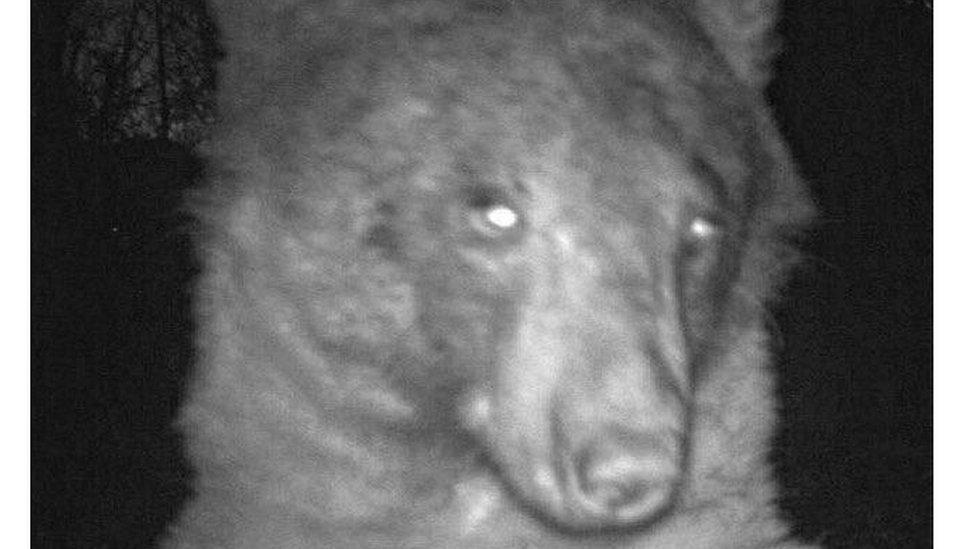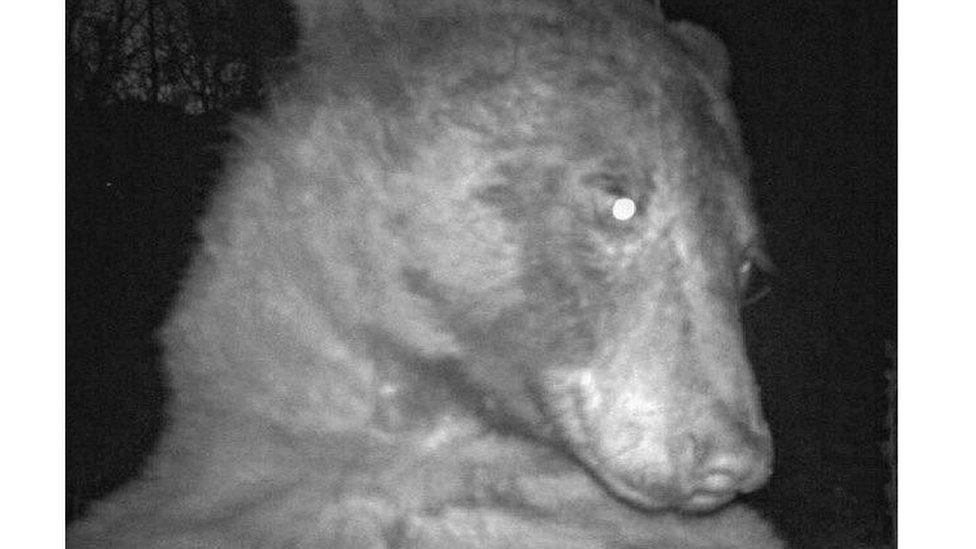Colorado bear poses for roughly 400 'selfies' on wildlife camera
- Published

A black bear in Colorado appeared on one motion-detecting camera roughly 400 times
A black bear in Colorado has been pausing and posing in front of motion-detecting cameras, snapping hundreds of "selfies".
On one camera, roughly 400 out of 580 images were of the same bear.
Most of the other animals at Open Space and Mountain Parks (OSMP) in Boulder simply walk by, searching for food or resting places. But not this bear.
This animal "took a special interest" in the cameras, an OSMP spokesperson said, and seized the "opportunity."
"These pictures made us laugh, and we thought others would, too,"spokesperson Philip Yates said in a statement
The OSMP posted some of the images on Twitter, external and the surprise selfie star soon caught the eye of many social media users.
"Sure, it's cute when the bear takes 400 selfies with the trail cam. But when I do it, I get a letter advising me that I should have taken a left at the trail split and that I was on private property," said Twitter user @EscpFrmFlatland.
Another Twitter user joked: "I think I look ok from the front but what about the side? Is my snout too long?"

Is my snout too long?
There are 9 motion-detecting cameras positioned across the park's 46,000 acres. They are activated when an animal walks by. Once triggered, the cameras either capture still photographs or short videos.
Bears, birds, foxes and owls are just a few of the animals captured by the park's cameras. Officials hope to learn "how local species use the landscape around us" - including bear selfies - "while minimizing our presence in sensitive habitats".
The cameras are placed in high-traffic areas, determined by the presence of footprints and animal-cleared pathways.
"These cameras help us to learn what animals are really out there," said Christian Nunes, a wildlife ecologist with OSMP, "and what they are up to over the course of a day, a week, or even years."